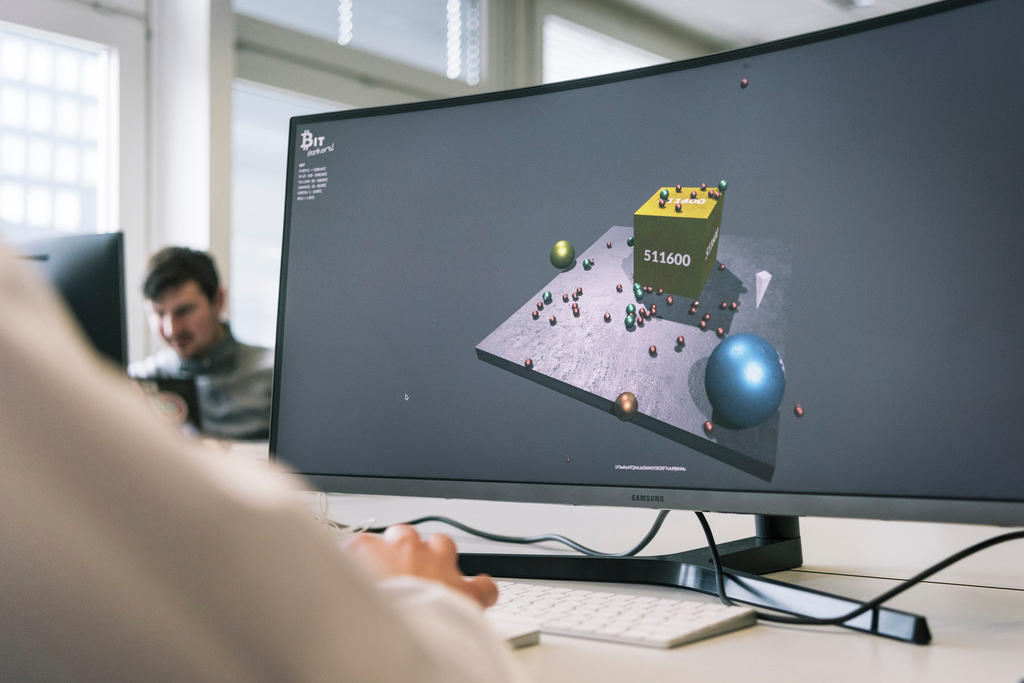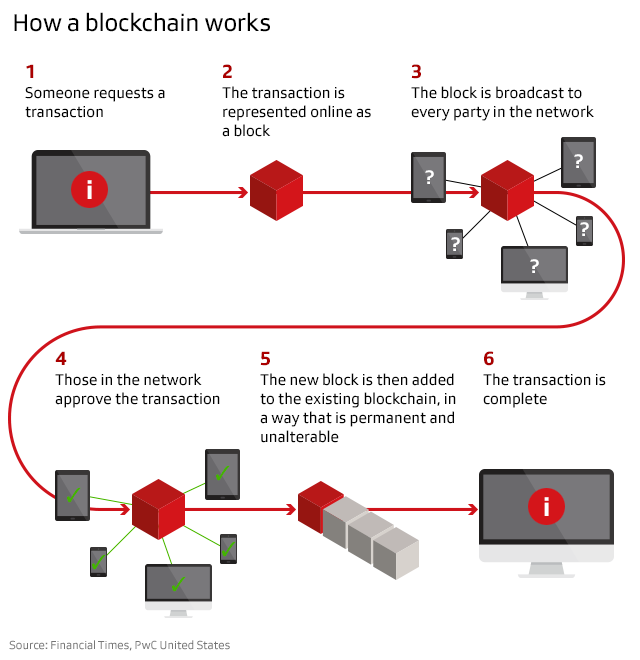Can research tame the excesses of the blockchain revolution?

The cryptocurrency craze has attracted hundreds of millions of francs in crowdfunding cash to Switzerland, often based on the flimsiest of concepts. The Crypto Valley Association (CVA) is banking on research to lay a more solid foundation for the industry in Switzerland.
To this end, CVA has invited academics and researchers from around the world to rub shoulders with entrepreneurs at a three-day blockchain conferenceExternal link to be held in Zug this week.

More
How blockchain could soon affect everyday lives
Switzerland’s appetite for blockchain needs a more balanced diet than speculation and fanciful notions, according to Alexander Denzler, head of blockchain research at Lucerne’s University of Applied Sciences and Arts (HSLU). Research can add healthier, and more palatable, ingredients to the mix.
There is a big need for a conference that focuses on technology rather than marketing for start-ups,” he told swissinfo.ch. “The blockchain hype of the last few years has resulted in a lot of heads being lost up in the clouds. We need to bring it back down to earth.
“When a start-up pitches a new idea, it can say anything it wants and it’s very difficult to prove whether this is right or wrong. Academia is grounded in mathematics, which is provable.”
Problem solving
Blockchain research is already well established in Switzerland. In addition to HSLU, research is being carried out at the University of Zurich, the Federal Institutes of Technology and other learning centres in Geneva, Fribourg and Basel.
Blockchain, a decentralised digital database, has been heralded as a groundbreaking innovation with uses that stretch far beyond cryptocurrencies or the financial sector. Proponents of the technology say it gives people better control over their personal information and will increase efficiencies in a range of applications, from logistics to voting, legal contracts and the fight against counterfeiting.
But it is also a new technology that has not been fully put to the test in the real world. It also has issues with unsustainable energy consumption and dealing with large volumes of transactions. Research could play a key role in finding solutions to these and other problems.
The CVA blockchain conference runs from June 20-22 in Zug, Switzerland. It aims to showcase blockchain research from Switzerland and abroad.
It has been endorsed by the Institute of Electrical and Electronics Engineers (IEEE)External link, whose seal of approval is a gold standard in the research industry.
It brings together some of the leading lights in blockchain research from IBM, Cisco, the University of California, Berkeley, Edinburgh’s Napier University, Imperial College, London, and Cornell University of New York.
The conference has also invited researchers and academics to submit papers on their blockchain projects to be presented during the event. swissinfo.ch is an official media partner of the event.
IBM is working on a number of blockchain projects at its research centre in RüschlikonExternal link, on the outskirts of Zurich. Specialists there are looking at a number of new blockchain innovations and improvements to the existing system.
Case studies
Researchers are developing anti-counterfeit sensors that can be implanted into products, such as medicines, to detect if they have been tampered with or are being used for the wrong purposes. This information is fed into a blockchain containing smart contracts that trigger alerts if violations occur.
IBM researchers also collaborate with the open source Hyperledger project run by the Linux Foundation. Together with industry partners, IBM is developing a protocol that allows banks to make trades within a blockchain without having to reveal to every user the exact volume or type of asset being transacted. This gets around the problem of compelling users to reveal too much sensitive information to competitors.
CVA president Oliver Bussmann is convinced that the future success of blockchain hinges more on solid research than some of the ‘get rich quick’ schemes being offered by budding entrepreneurs.
“To stay competitive globally we need to have a strong base of blockchain research and development in Switzerland,” he told swissinfo.ch. “We want to see what’s coming down the road in the next 18 months.”
This in turn would help create better companies that are more likely to survive in the competitive industry. “Everyone is hoping that out of the hundreds of new blockchain projects, we will see the next Google or Facebook. Switzerland could play host to the next unicorn [a company worth at least $1 billion].”


In compliance with the JTI standards
More: SWI swissinfo.ch certified by the Journalism Trust Initiative












You can find an overview of ongoing debates with our journalists here . Please join us!
If you want to start a conversation about a topic raised in this article or want to report factual errors, email us at english@swissinfo.ch.